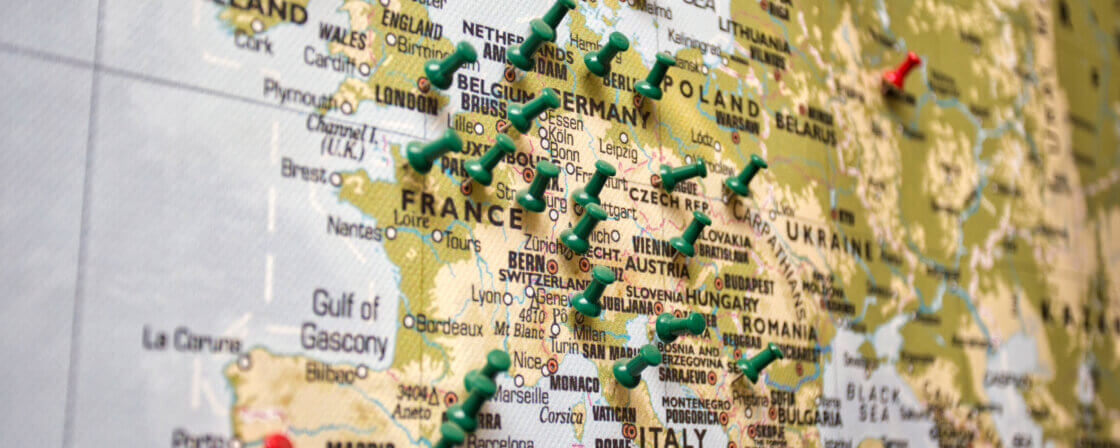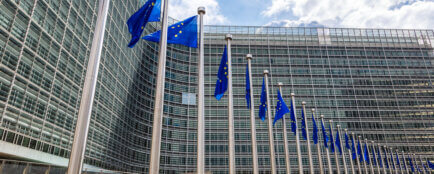In a globalised world, multinationals and European companies play an unmistakable role in international trade, investment and economic development. Their legal structure, their governance and the benefits they bring are of interest to many a businessman, investor and lawyer.
Multinational companies connect markets, bring innovation and create jobs in different countries. European companies then provide a unique legal framework that facilitates doing business within the European Union. It is worthwhile for anyone involved in international trade to know and understand how they work.
What is the difference between a multinational and a European company?
Multi-national corporations (MNCs) are businesses operating in multiple countries with a single management. Their main characteristic is their ability to adapt to different regulatory systems and to manage their activities effectively on a global level. Examples of MNCs include technology giants such as Apple and Microsoft, but also car companies, pharmaceutical firms and other global players.
European companies (Societas Europaea, SE) are a specific legal form regulated by European law. Their main advantage is the ability to freely move their registered office within the EU without the need to liquidate the company and re-incorporate it. This legal framework makes it easier to do business across borders and offers flexibility in management.
Are you solving a similar problem?
Do you have a legal question and are not getting an answer?
We’ll give it to you. Feel free to contact us for any legal matter and with any legal query.
I want more information
- When you order, you know what you will get and how much it will cost.
- We handle everything online or in person at one of our 6 offices.
- We handle 8 out of 10 requests within 2 working days.
- We have specialists for every field of law.
How have these companies evolved?
The legal framework of multinational companies has evolved from the early days of international trade, when the first colonial corporations were formed, to the current regulation by the OECD and the European Union. Multinational business activities date back to the 16th century when trading companies such as the British East India Company were formed. As globalisation and technological advances increased, so did the need for legal regulation of these entities.
The European Company was formally introduced by Council Regulation (EC) No 2157/2001, which entered into force in 2001. This legal framework was created to facilitate doing business in the EU and to eliminate barriers that had previously hindered the single market.
How can I set up a European company?
A European company can be set up in several ways:
- By merging two or more companies established in different EU Member States.
- By converting a national company into a European company if the company has been registered in the EU for at least two years.
- By the creation of a subsidiary by several companies from different Member States.
- A joint venture between several legal entities.
The registration process involves a number of steps such as approval by the general meeting, registration in the commercial register and meeting capital requirements. The minimum share capital is EUR 120 000. The issue of employee participation, which is legally binding in the case of European companies, also plays an important role.
Tip for article
Tip: Limited partnerships are a minority in the Czech Republic. Nevertheless, this form of business can be profitable and interesting for some. Find out more about it in our article.
(Dis)advantages of a European society
There are undeniable advantages of free movement within the EU, as a company can relocate its headquarters without having to go through liquidation and reincorporation. The uniform legislation, which is tuned to the European level, also speaks for itself. Many companies also welcome tax optimisation, as businesses can choose to be based in a jurisdiction with a more favourable tax regime. Finally, we can also mention the ease with which businesses can be reorganised, as acquisitions or mergers are easier.
Among the disadvantages, we would mention the higher set-up costs, meeting the legislative requirements is not only financially but also administratively challenging. The management is more complex, as there are various legal and tax regulations to take into account. The requirement foremployee representation in administrative bodies can also be a complication.
What does it look like on the inside?
A European company can choose between two governance models. The first is a dualistic management system with a board of directors and a supervisory board. The second is a monistic model with a single management body.
The choice depends on the business strategy and the preferences of the founders. Each model brings different benefits and responsibilities, and the choice often depends on the corporate culture and the specific needs of the business.
Tip for article
Tip: Banks offer a business loan to budding entrepreneurs or those looking to expand their business. Under what conditions can it be obtained and what are the pitfalls of this loan?
Legal challenges for multinational companies
Multinationals face a number of legal challenges, including antitrust rules – competition regulation prevents market monopolisation. Data protection, known as GDPR, also came into force a few years ago and since then companies must ensure that their customers’ data is protected. In addition, different countries have different requirements for employment rights, so regulating employment law is a real challenge. So are tax laws, which companies often have to skate between to adapt to different tax regimes.
Legislation on corporate responsibility, compliance and ESG (environmental, social and governance) factors is increasingly stringent. Companies must be committed to transparency, sustainability and ethical business practices.
With increasing digitalisation, artificial intelligence and a focus on sustainability, the strategies of multinational giants are also changing. New technologies, regulations and geopolitical changes will continue to shape the future of global business.
Summary
Multinationals and European companies have a major impact on the global economy and international trade. Multinationals operate in multiple countries and adapt to different regulatory systems, while European companies (SEs) offer a single legal framework within the EU with the freedom to move their headquarters. Advantages of SEs include tax optimisation, easier cross-border mergers and uniform legislation, while disadvantages include high set-up costs and complex management. Legal challenges for multinationals include competition regulation, GDPR, employment law and tax obligations. With increasing digitalisation and ESG requirements, the business environment is constantly changing.




